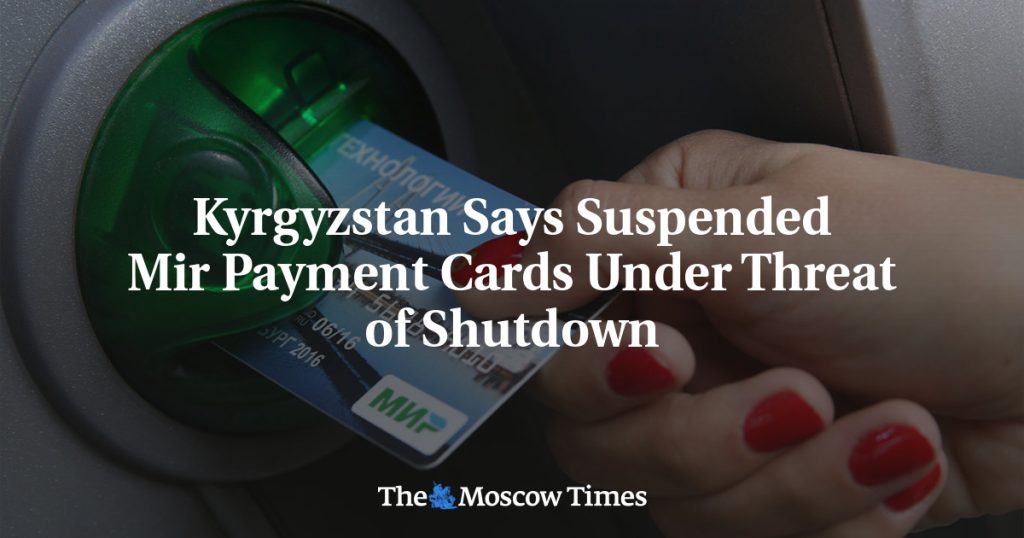Kyrgyzstan recently decided to stop accepting Russia’s Mir payment cards due to pressure from its Latvian-based software provider threatening to shut down its operations. The Interbank Processing Center (IPC) in Kyrgyzstan made this decision in order to minimize the risk of secondary sanctions after the U.S. Treasury sanctioned Mir’s Russian operator. The chairman of Kyrgyzstan’s cabinet of ministers revealed that the Latvian company behind IPC’s software warned that it would disconnect the service if ties with Mir were not cut. This led to the suspension of Mir cards in the country.
Kyrgyzstan’s prime minister, Akylbek Japarov, mentioned that there are plans to restore Mir’s operations while avoiding sanctions, but did not provide details at the time. He also stated that he intends to discuss the situation with U.S. officials during a visit to Washington in April. Despite the suspension of Mir cards, Japarov emphasized that Kyrgyzstan cannot completely sever trade and economic relations with Russia, as it is a strategic partner. However, the threat of companies coming under sanctions poses a risk to the country’s monetary system and requires careful navigation.
There are concerns among Western officials that Kyrgyzstan may serve as a conduit for Russia to acquire sanctioned goods through trade. Trade between Western nations and Russia’s regional partners, such as Kyrgyzstan and Armenia, has increased following sanctions imposed on Russia in response to the Ukraine invasion. Mir, which serves as an alternative payment option for Russian travelers after Visa and Mastercard restrictions, has faced backlash from the U.S. Treasury, warning international banks against supporting Russia’s efforts to evade sanctions. As a result, Armenia and Samsung’s mobile payment service have also ceased to accept the Mir card in response to these developments.
The decision to suspend Mir cards in Kyrgyzstan reflects the complex dynamics at play between Russia, international sanctions, and global economic partnerships. While the country is reliant on Russia as a strategic partner, it must also navigate international pressure to avoid potential repercussions from violating sanctions. Japarov’s upcoming visit to the U.S. to engage in discussion on the matter highlights the importance of diplomacy and communication in managing such situations. The impact of these decisions on regional trade and financial systems underscores the need for careful considerations when it comes to navigating global economic relations in an increasingly interconnected world.


